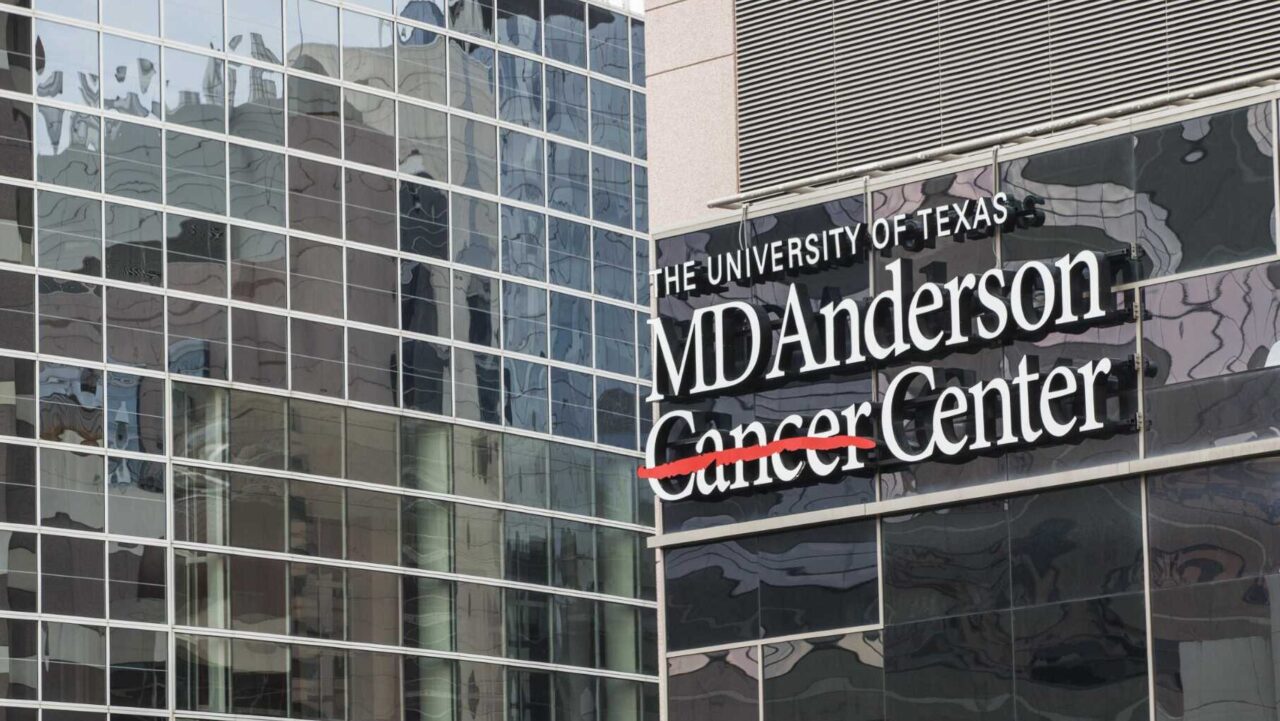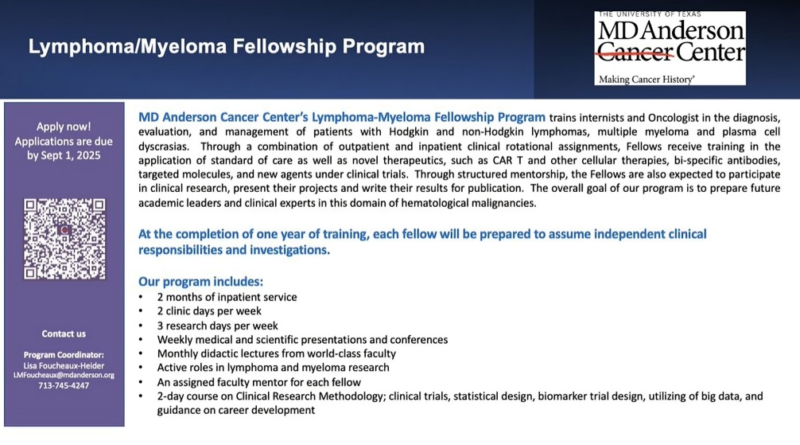
MD Anderson Cancer Center’s Lymphoma-Myeloma Fellowship Program
The Lymphoma/Myeloma Fellowship Program at MD Anderson Cancer Center is structured to train fellows for careers in academic medicine, emphasizing state-of-the-art clinical care and cutting-edge clinical and basic science research. The program typically accepts three to four fellows each year.
Fellows in this program receive exceptional instruction in the clinical management of patients with lymphoma and myeloma. They are well-prepared to make significant contributions to the field through leadership roles and involvement in clinical, basic science, and translational research.
Upon completing the fellowship, participants will meet the eligibility requirements for subspecialty certification by the American Board of Medicine. Graduates of the Lymphoma/Myeloma Fellowship Program have pursued diverse careers worldwide, reflecting the program’s strong reputation and comprehensive training approach.
Robert Orlowski shared a post on X:
“MD Anderson Cancer Center’s Lymphoma–Myeloma Fellowship Program.
Contact Program Coordinator: Lisa Foucheaux-Heider.”

Source: Robert Orlowski/X
Robert Orlowski, M.D., Ph.D., holds multiple positions at The University of Texas MD Anderson Cancer Center, including Chairman, Ad Interim Director of Myeloma, and Professor of Medicine in the Departments of Lymphoma/Myeloma and Experimental Therapeutics within the Division of Cancer Medicine. Additionally, he chairs the SWOG Barlogie/Salmon Myeloma Committee, which is part of the National Clinical Trials Network, dedicated to advancing new therapies and understanding the biology of myeloma.
Dr. Orlowski’s expertise lies in both clinical practice and scientific research, with a particular focus on translating laboratory discoveries into effective treatments for patients. He investigates drug resistance mechanisms in myeloma and seeks to identify predictive biomarkers for treatment response. Notably, his past contributions include leadership roles in developing proteasome inhibitors like bortezomib and carfilzomib, as well as monoclonal antibodies such as daratumumab and elotuzumab.
-
Challenging the Status Quo in Colorectal Cancer 2024
December 6-8, 2024
-
ESMO 2024 Congress
September 13-17, 2024
-
ASCO Annual Meeting
May 30 - June 4, 2024
-
Yvonne Award 2024
May 31, 2024
-
OncoThon 2024, Online
Feb. 15, 2024
-
Global Summit on War & Cancer 2023, Online
Dec. 14-16, 2023
